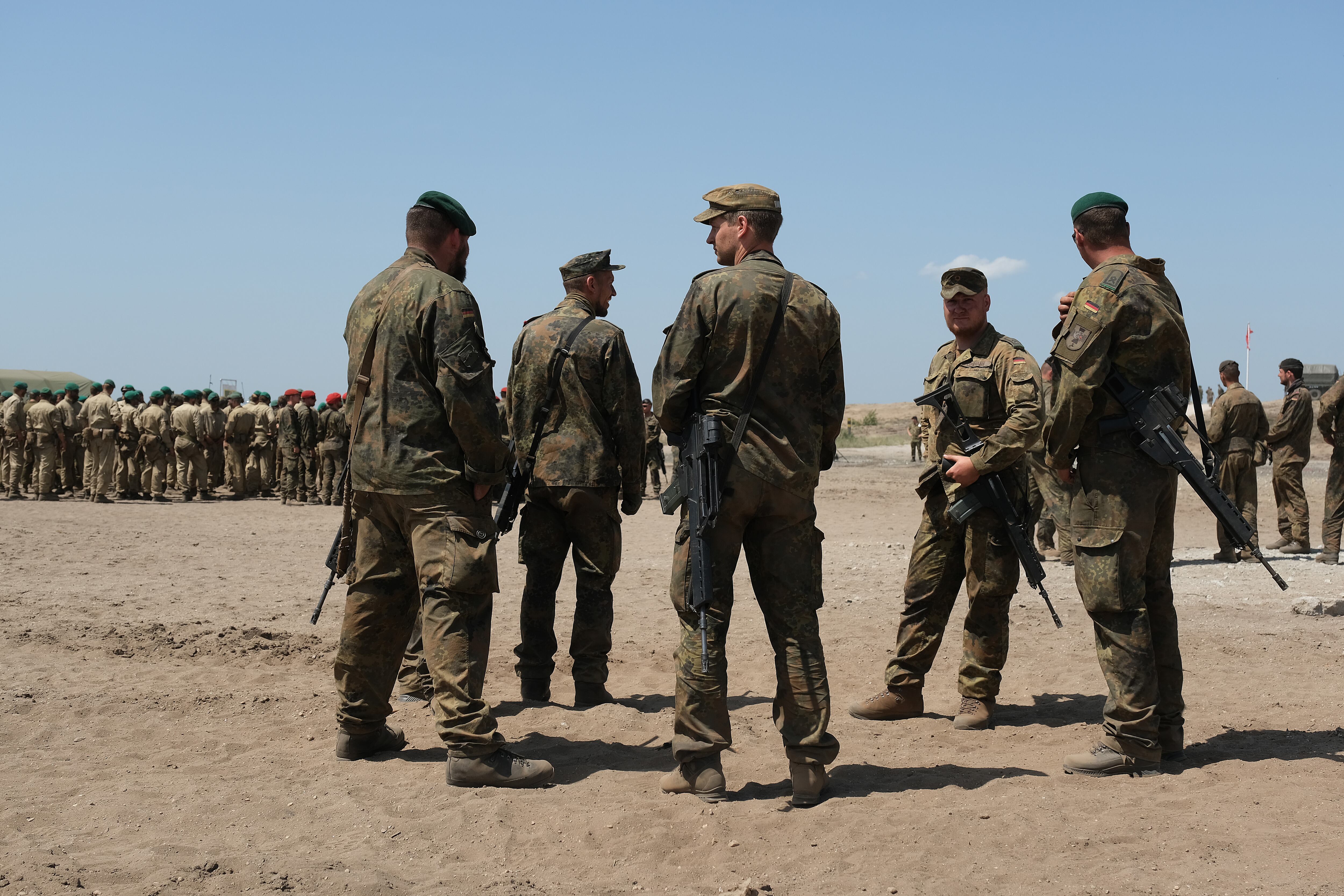COLOGNE, Germany — Germany is again quarreling over a defense budget equal to 2 percent of its gross domestic product, thanks to the new defense minister, Annegret Kramp-Karrenbauer.
A confidante to Chancellor Angela Merkel, Kramp-Karrenbauer raised the prospect of a significant military-spending boost in media interviews over the past week, and again on Wednesday during a speech before parliamentarians in Berlin, who were recalled from vacation for her impromptu swearing-in ceremony.
“If we want the Bundeswehr to be able to fulfill its role, the defense budget must rise,” Kramp-Karrenbauer said.
While she reiterated the 2 percent spending pledge approved by all NATO members as a German objective, she left open when exactly Berlin would meet it.
Ursula von der Leyen, Kramp-Karrenbauer’s predecessor and now president-elect of the European Commission, pursued a similar strategy, but the emphasis appeared fuzzier during the latter part of her tenure. That is because the latest Cabinet spending proposal has defense spending falling to somewhere around 1.3 percent of GDP in the early 2020s.
Kramp-Karrenbauer, who also holds the job of leading the Christian Democratic Union, said she would use her authority within the party to advance an agenda aimed at boosting defense objectives. Achieving a spending level of 1.5 percent of GDP by 2024 is a key element of that pledge, she said.
RELATED

Germany this year is on track to spend about $50 billion on defense, nearing the peak of a large increase that began several years ago. The latest defense-spending projections are more timid, largely because there are questions about the continued pace of economic growth for Germany and because the Social Democratic Party — or SPD, a junior partner in the governing coalition — believe more money alone cannot fix the Bundeswehr.
The SPD on Wednesday signaled again that it would not carry the budget increase envisioned by Kramp-Karrenbauer. Rolf Mützenich, a member of the party leadership who sits on the parliamentary Defence Committee, argued Germany’s posture for security policy should include a greater share of nonmilitary means to counter crises.
“The Bundestag alone holds the purse strings,” Mützenich told Kramp-Karrenbauer, as key lawmakers took turns responding to her speech. The new defense minister should prepare herself to deal with a “confident” parliament as questions of military funding come up, he said.
Besides laying down a marker on the budget, Kramp-Karrenbauer also said she would strive to spark a new dynamic in evaluating future German military deployments.
The comment goes to the heart of a problem that analysts in Germany have decried for some time — that troop requests from the United States for Syria, for example, are so mired in domestic politics that there is little room for larger geopolitical considerations.
When allies ask Germany to contribute forces, “we can’t approve them hastily, nor deny them reflexively,” Kramp-Karrenbauer said. Instead, the requests should be weighed in coordination with allies, resulting in rules of engagement that “make sense militarily,” as required by the coalition, she added.
Mützenich shot down that idea, too. Alliance considerations are ill-suited to judge the merits of sending German troops abroad, he said, “since a racist sits in the White House.”
Sebastian Sprenger is associate editor for Europe at Defense News, reporting on the state of the defense market in the region, and on U.S.-Europe cooperation and multi-national investments in defense and global security. Previously he served as managing editor for Defense News. He is based in Cologne, Germany.








